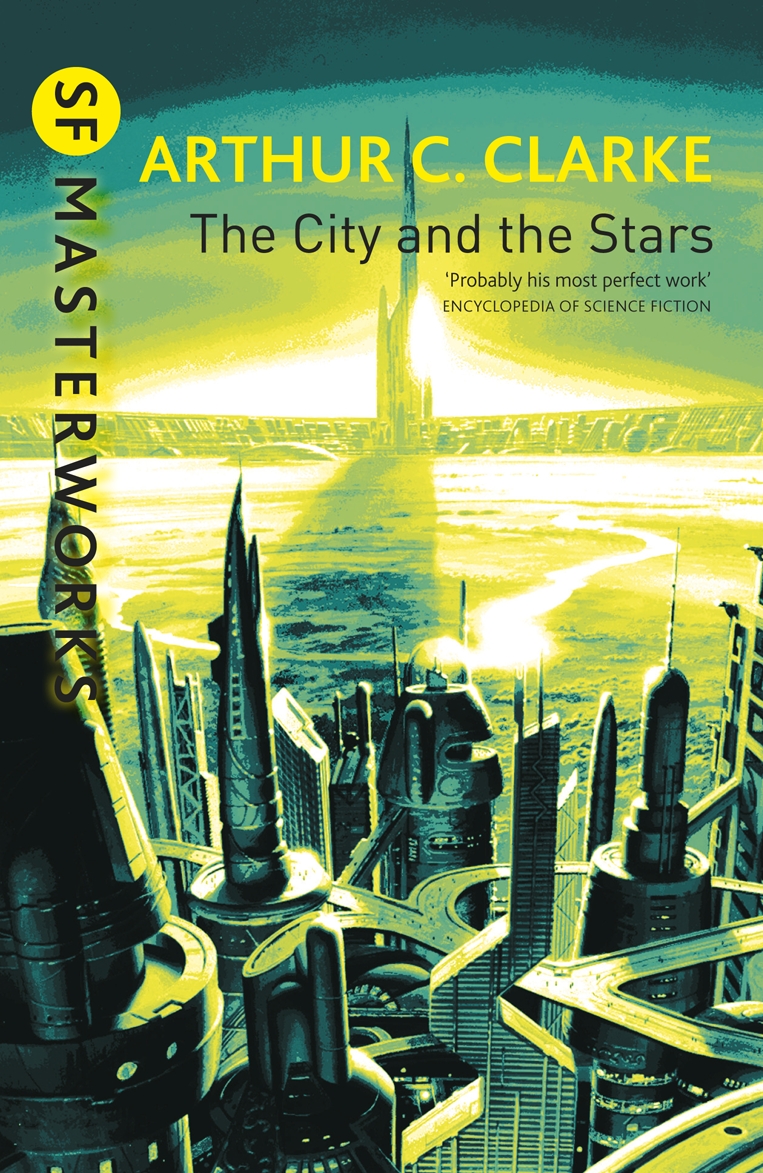 I’ve always
loved early sci-fi for the sense of originality and exploration it gives. Modern
sci-fi can be great, but I find it’s often self-consciously aware of the
existing canon and tropes and always pushing to reach beyond them, whereas
sci-fi stories written in the 50s and 60s (and earlier!) seem eager to simply
explore their own ideas without being coloured by those of others.
I’ve always
loved early sci-fi for the sense of originality and exploration it gives. Modern
sci-fi can be great, but I find it’s often self-consciously aware of the
existing canon and tropes and always pushing to reach beyond them, whereas
sci-fi stories written in the 50s and 60s (and earlier!) seem eager to simply
explore their own ideas without being coloured by those of others.I have to admit I’ve never read any of Clarke’s other works (although 2001: A Space Odyssey has been on my must-read list for a long time), so I wasn’t sure what to expect from this one.
The City and the Stars opens, millions of years in the future, with the human race having developed a form of immortality in which, at the end of each life cycle, a person’s mind is stored by a super-computer and reborn into a new, fully formed adult body at a later date. This continual recycling of minds and the fact that physical reproduction no longer takes place has led to stagnation, and only one strictly enclosed city on Earth remains in existence.
What really
grabbed me and pulled me into this novel was this, at the end of Chapter
2:
‘You, Alvin, alone of the human race, have never lived before. In literal truth, you are the first child to be born on Earth for at least ten million years.’
‘You, Alvin, alone of the human race, have never lived before. In literal truth, you are the first child to be born on Earth for at least ten million years.’
The
protagonist, Alvin, is the only inhabitant of the city of Diaspur who is not
content to live encased in their safely regulated environment, and yearns to
escape and wander among the stars as his ancestors once did. His discoveries
overturn his established beliefs and set in motion events which have been anticipated
for millennia.
While many of the scientific technicalities have been glossed over or only vaguely alluded to (one habit of early sci-fi writers that does grate with me), The City and the Stars is a great exploration of stagnation vs. potential and the damaging effects of wilful ignorance. For me, the best science fiction is more about human nature than about science, and that certainly applies here.
So, if you want high-octane spaceship battles and slime-covered aliens biting peoples’ heads off, maybe this isn’t the science fiction for you, but if you like insightful, imaginative writing with a wonderful turn of phrase, Arthur C Clarke’s The City and the Stars is well worth reading.
Next up: The Sealed Letter, by Emma Donoghue
While many of the scientific technicalities have been glossed over or only vaguely alluded to (one habit of early sci-fi writers that does grate with me), The City and the Stars is a great exploration of stagnation vs. potential and the damaging effects of wilful ignorance. For me, the best science fiction is more about human nature than about science, and that certainly applies here.
So, if you want high-octane spaceship battles and slime-covered aliens biting peoples’ heads off, maybe this isn’t the science fiction for you, but if you like insightful, imaginative writing with a wonderful turn of phrase, Arthur C Clarke’s The City and the Stars is well worth reading.
Next up: The Sealed Letter, by Emma Donoghue
No comments:
Post a Comment